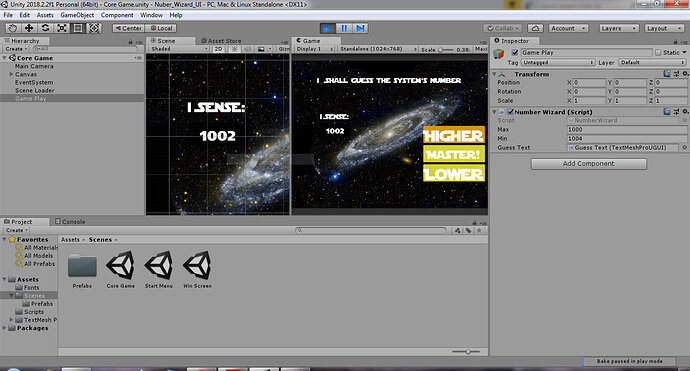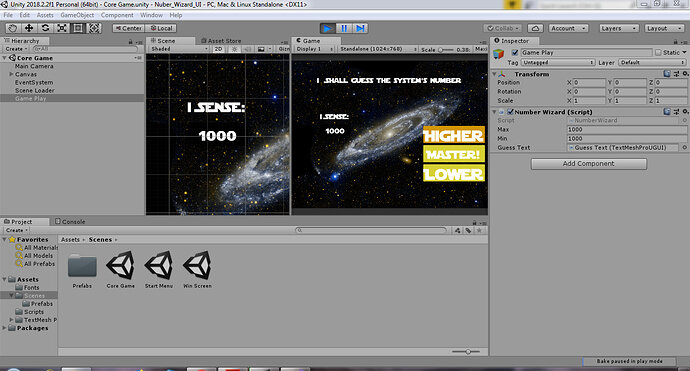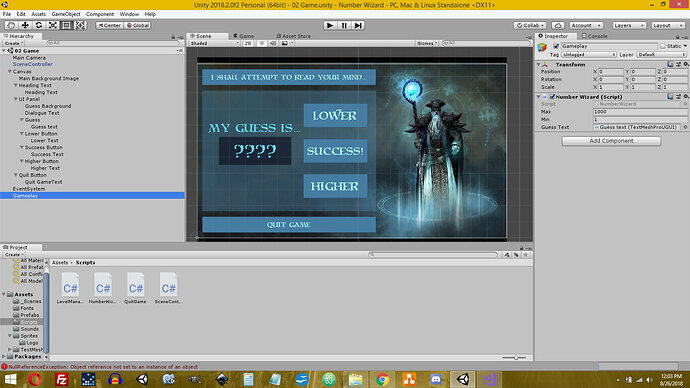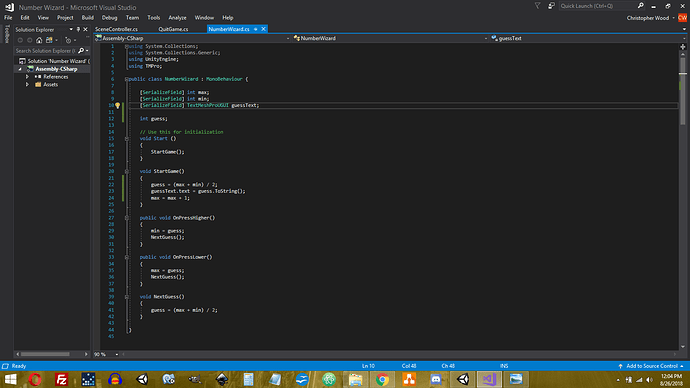In this video (objectives)…
- Hook up our buttons to the previously created methods.
- Link our UI text field to our code.
- Use ToString() to convert our integer into a string to be displayed in our text field.
After watching (learning outcomes)… Connect a variable in our code with a text field in our UI.
(Unique Video Reference: 9_UI_CUD)
We would love to know…
- What you found good about this lecture?
- What we could do better?
Remember that you can reply to this topic, or create a new topic. The easiest way to create a new topic is to follow the link in Resources. That way the topic will…
- Be in the correct forum (for the course).
- Be in the right sub-forum (for the section)
- Have the correct lecture tag.
Enjoy your stay in our thriving community!






